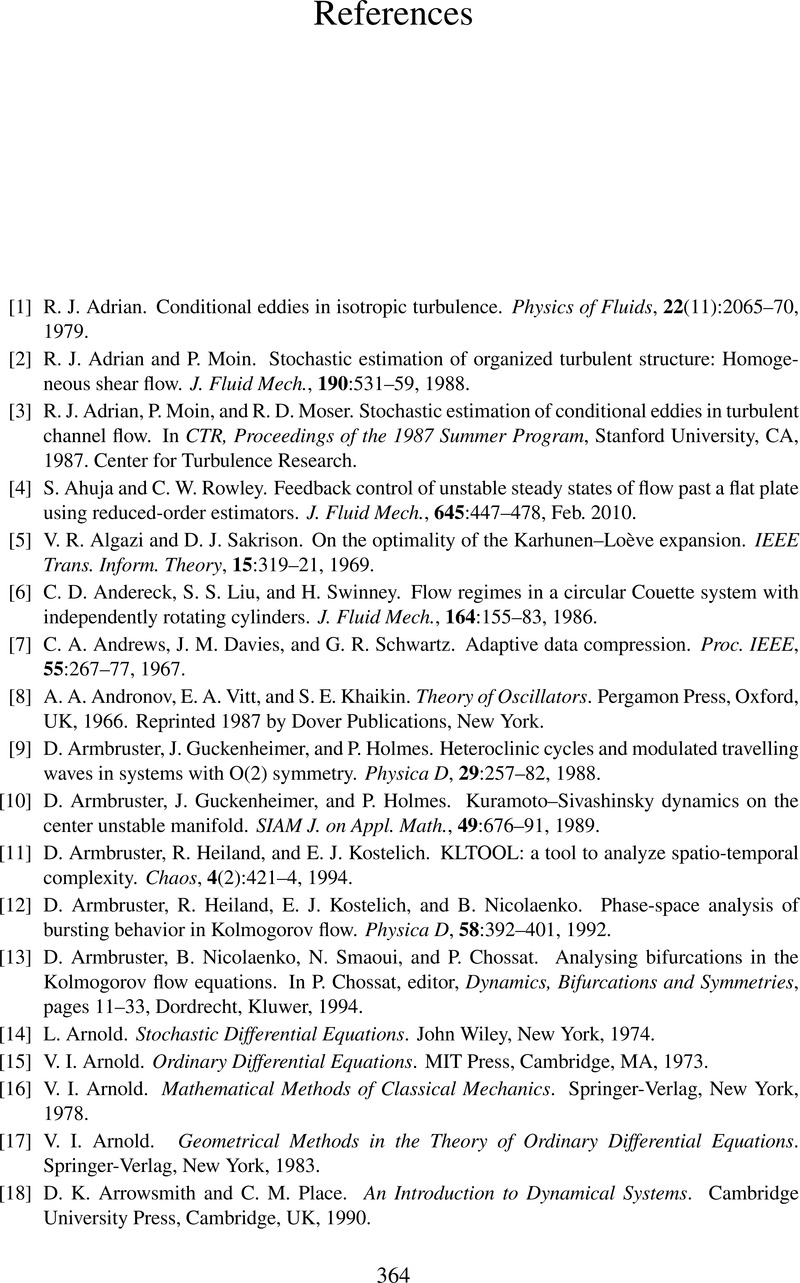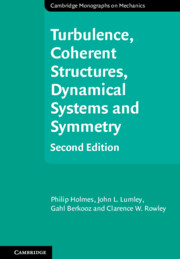References
Published online by Cambridge University Press: 05 June 2012
Summary

- Type
- Chapter
- Information
- Turbulence, Coherent Structures, Dynamical Systems and Symmetry , pp. 364 - 381Publisher: Cambridge University PressPrint publication year: 2012



